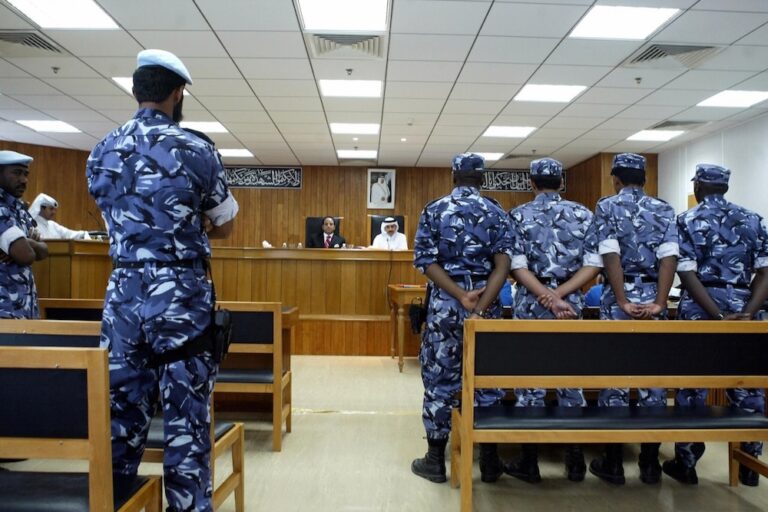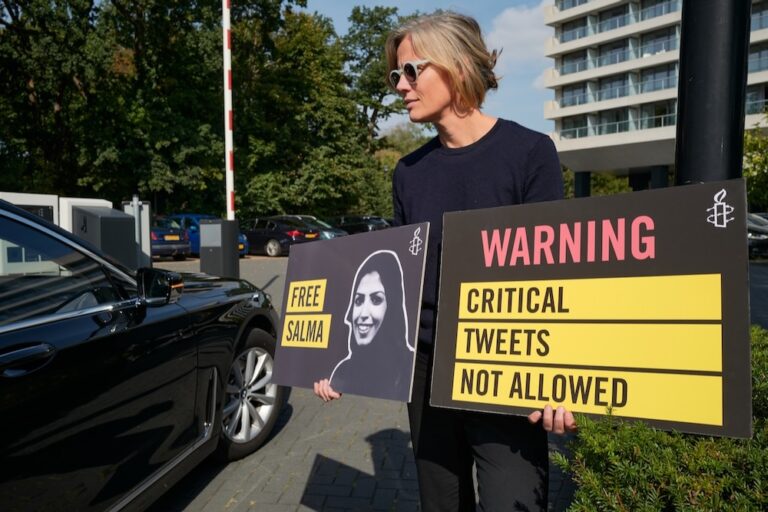If convicted, Ra'if Badawi faces up to five years in prison and a fine of up to US$800,000.
(Human Rights Watch/IFEX) – Beirut, July 17, 2012 – Saudi authorities should drop charges and release the editor of the Free Saudi Liberals website for violating his right to freedom of expression on matters of religion and religious figures, Human Rights Watch said today. Prosecutors have charged Ra’if Badawi under the 2007 Anti-Cybercrime law, alleging that his website “infringes on religious values” by providing a platform for open debate of views on religion and religious figures.
The prosecution’s evidence includes five website postings by Badawi and anonymous website members critical of Saudi religious authorities and two postings regarding theological questions, the charge sheet says. If convicted, Badawi faces up to five years in prison and a fine of up to three million Saudi Riyals (US$800,000).
“The Saudi government is fighting a losing battle if it thinks it can stifle the exchange of ideas on religion by jailing those who express their views,” said Christoph Wilcke, senior Middle East researcher at Human Rights Watch. “The government has no business policing Saudis’ religious views.”
Saudi security forces stopped Badawi and arrested him on June 17, 2012, as he was driving in Jeddah, his wife and a close associate told Human Rights Watch. On the website, Badawi and others had declared May 7 a day for Saudi liberals, hoping to garner interest in open discussion about the differences between popular religion and politicized religion, said Su’ad al-Shammari, secretary general of the website.
Badawi had been living away from his home for months to avoid a run-in with the police, although he did not believe he was formally wanted for arrest, Badawi told Human Rights Watch in March.
On March 18, Shaikh Abd al-Rahman al-Barrak, a well-known conservative cleric, issued a religious ruling declaring Badawi an “unbeliever . . . and apostate who must be tried and sentenced according to what his words require.” Al-Barrak listed five pieces of what he described as evidence, such as Badawi’s alleged “claim that Muslims, Jews, Christians, and atheists are all equal,” and Badawi’s alleged “exposure of the inconveniences of the month of Ramadan.” Al-Barrak also dismissed the possibility of an open discussion of such matters, saying that even if these were not Badawi’s own opinions but an “account of the words of others, this is not allowed unless accompanied by a repudiation” of such words.


